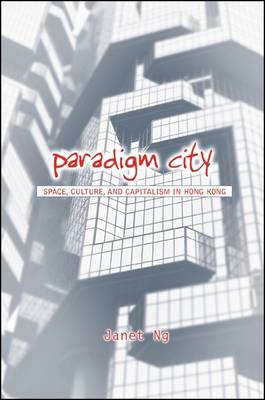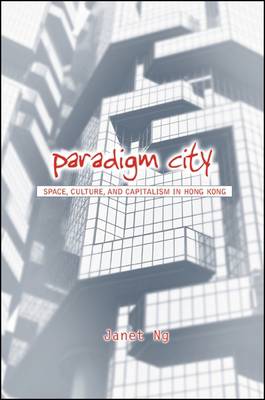
- Afhalen na 1 uur in een winkel met voorraad
- Gratis thuislevering in België vanaf € 30
- Ruim aanbod met 7 miljoen producten
- Afhalen na 1 uur in een winkel met voorraad
- Gratis thuislevering in België vanaf € 30
- Ruim aanbod met 7 miljoen producten
Omschrijving
Materially grounded analysis of contemporary film, literature, and music in Hong Kong that resists the superficial stereotypes of the "global city."
Hong Kong is often cast in the role of the paradigmatic "global city," epitomizing postmodernism and globalization, and representing a vision of a cosmopolitan global and capitalist future. In Paradigm City, Janet Ng takes us past the obsession with 1997-the year of Hong Kong's return to China-to focus on the complex uses and meanings of urban space in Hong Kong in the period following that transfer. She demonstrates how the design and ordering of the city's space and the practices it supports inculcates a particular civic aesthetic among Hong Kong's population that corresponds to capitalist as well as nationalist ideologies. Ng's insightful connections between contemporary film, literature, music, and other media and the actual spaces of the city-such as parks, shopping malls, and domestic spaces-provide a rich and nuanced picture of Hong Kong today.
Specificaties
Betrokkenen
- Auteur(s):
- Uitgeverij:
Inhoud
- Aantal bladzijden:
- 210
- Taal:
- Engels
- Reeks:
Eigenschappen
- Productcode (EAN):
- 9780791476666
- Verschijningsdatum:
- 1/01/2010
- Uitvoering:
- Paperback
- Formaat:
- Trade paperback (VS)
- Afmetingen:
- 150 mm x 239 mm
- Gewicht:
- 362 g

Alleen bij Standaard Boekhandel
Beoordelingen
We publiceren alleen reviews die voldoen aan de voorwaarden voor reviews. Bekijk onze voorwaarden voor reviews.











